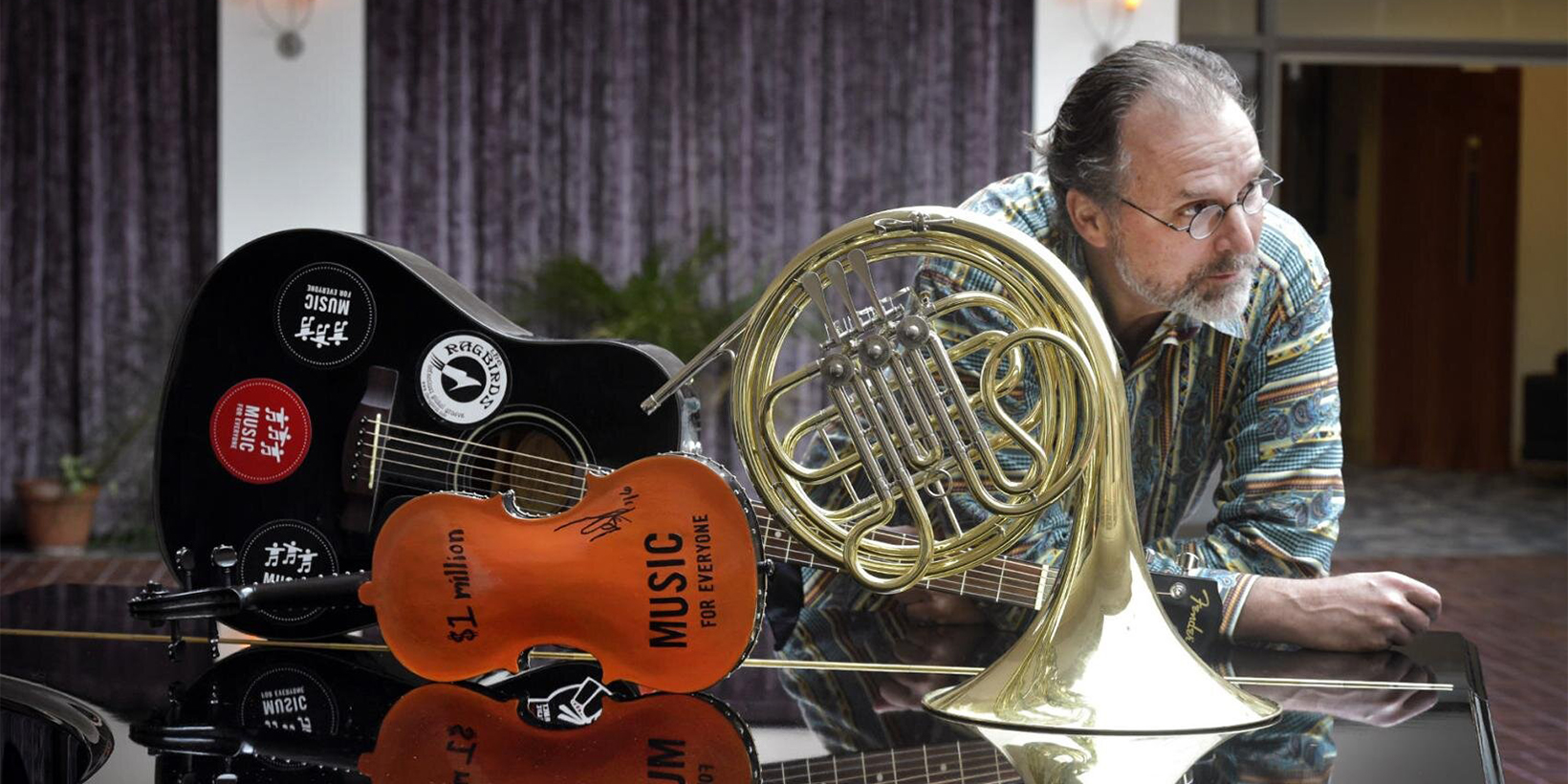
Times like these can spur intense internal reflection about what is important in life. It also can lead to some questioning about whether what we do, whether at home or in the workplace, adds value in our community.
As the executive director of a music-related nonprofit organization, I have thought deeply regarding exactly how our mission of cultivating the power of music as an educational, community-building, and public health tool applies to the COVID-19 crisis at hand. Clearly, while music is very important, an argument can be made that compared to the heroic public health workers and organizations that are directly addressing life-and-death issues, music’s importance pales.
But to underestimate the importance of music in our lives and communities in times like these is misguided.
Human beings are social creatures. Our brains are wired for, and our emotional health is tied to, being connected with others. We crave touch, we need human connections and we need to feel a sense of belonging. Our emotional and mental well-being literally depend on this sense of human connectedness.
In a crisis of this magnitude, people feel confused, afraid, alone, and unmoored. These feelings and emotions are amplified significantly in a global viral pandemic that requires social distancing, self-isolation, and lockdowns. On top of that, the realization that such social distancing may be required for months rather than weeks further contributes to the anxiety, stress, and feelings of hopelessness.
Throughout time, one of the fundamental responsibilities of musicians and other artists has been to create art that shines a light on the issues of the day in a way that helps make sense of the world around us, offering hope and comfort amid fear and uncertainty. But in the age of this novel coronavirus, accessing and investing in music is infinitely more important for another reason.
It is clear that following closely on the heels of the virus will emerge an emotional and mental health crisis within our populace. The impact of social separation and isolation on issues relating to depression, loneliness, hopelessness, and suicide may skyrocket.
Research tells us that music is one of our most powerful therapeutic tools in helping to mitigate the effects and impact of depression, anxiety disorders, stress, loneliness, and isolation. Music can elevate an individual’s mood, resulting in a more positive outlook. It also offers a pathway to connecting with other humans.
That being the case, now more than ever we must harness and leverage the power and potential of music.
We hope to do this in a small way Thursday in the Community Clamor, an event led by LNP | LancasterOnline, the City of Lancaster, and Music For Everyone, the organization I lead.
We’re asking Lancaster city residents to step outside their homes at 6 p.m. — while maintaining safe social distances from their neighbors — to play a musical instrument, cheer, sing or simply bang together some pots and pans.
The aim will be to thank health care workers and other essential workers for putting their lives on the line during this pandemic. To let some of our anxiety go. And to connect with one another.
As David Brooks noted last month in The New York Times, “music and art are already filling the emotional gaps left by the absence of direct human contact.”
He cited the example of neighborhood kids putting on a cello concert for an elderly woman who was self-isolating. Other examples include the opera singer in Milan, Italy, who performed from her balcony for her neighbors during that city’s lockdown. Numerous musicians are conducting virtual performances from the comfort of their homes. These are all examples of how musicians and artists are creatively leveraging their talents to serve the greater public good.
In a very strange sort of way, the current self-isolation and lockdown measures offer musicians and artists something that they crave — a captive audience of individuals and families longing for entertainment and a sense of belonging and connectedness as they sit at home with nowhere to go.
While the most pressing current need is addressing the physical health issues and economic challenges related to this pandemic, let’s not forget that this current crisis challenges each and every one of us on an emotional and mental health level.
In the uncertain weeks and months ahead, leveraging music’s capacity to mitigate the negative impacts of isolation, and to keep people connected, will be profoundly important. Whether looking to bring your family together, calm your nerves, engage your kids, or to feel connected to another human, music will be an essential tool in our efforts to survive the current crisis.
What we as musicians, artists, and community arts leaders do in the face of this crisis is vitally important. Our communities are going to need the soothing, healing, and connectedness that music and the arts are uniquely qualified to provide.
We all need to think outside the box to leverage our talents, connections, resources, and the power and potential of music and the arts to help our communities come out on the other side of this crisis stronger, healthier, and more connected and empathetic than ever.
John Gerdy is the founder and executive director of Music For Everyone. He can be reached at JohnGerdy@aol.com